Analysis
How a New Class of Investors Driven by Nostalgia—and Flush With Cash—Shot the Video Game Market Into High Orbit
Insiders say young adults are excited at the prospect of reliving old memories.
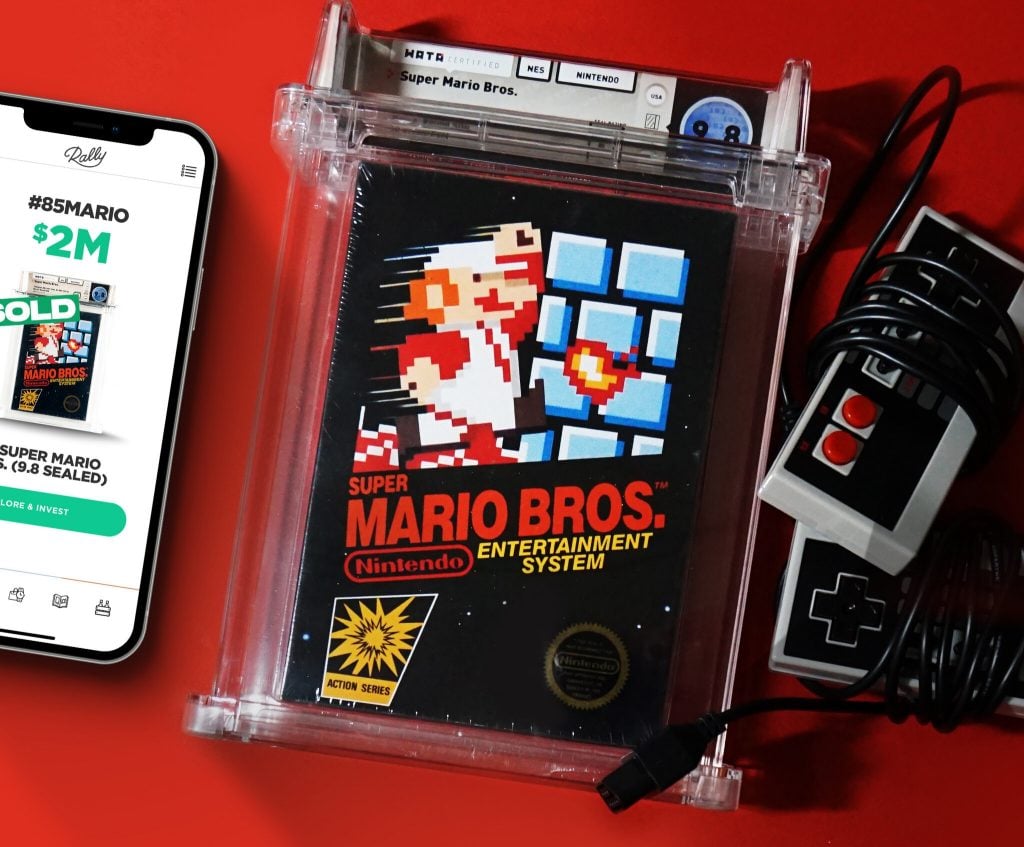
Insiders say young adults are excited at the prospect of reliving old memories.

Sarah Cascone

Since last July, the record for the world’s most expensive video game has been broken six times, skyrocketing from $114,000 for a 1985 copy of Super Mario Bros. to $2 million for a pristine sealed edition of the same game.
What led to such a sudden jump?
“I do think that everyone being at home and having a chance to focus on themselves has jump-started the market in a lot of ways,” Valarie McLeckie, a video games specialist at Heritage Auctions, told Artnet News.
The company’s first six-figure video game sale came in February 2019, when yet another copy of Super Mario Bros. from the title’s test market U.S. launch in 1985, sealed with a sticker—rather than shrink wrapped—sold for $100,150 in a private sale.
Auction results at that level took a little longer, but collectors who were watching closely could see the market picking up steam throughout 2020. The trend was in line with increased demand across many different categories of collectibles—including another Nintendo product, Pokémon cards—during the pandemic.
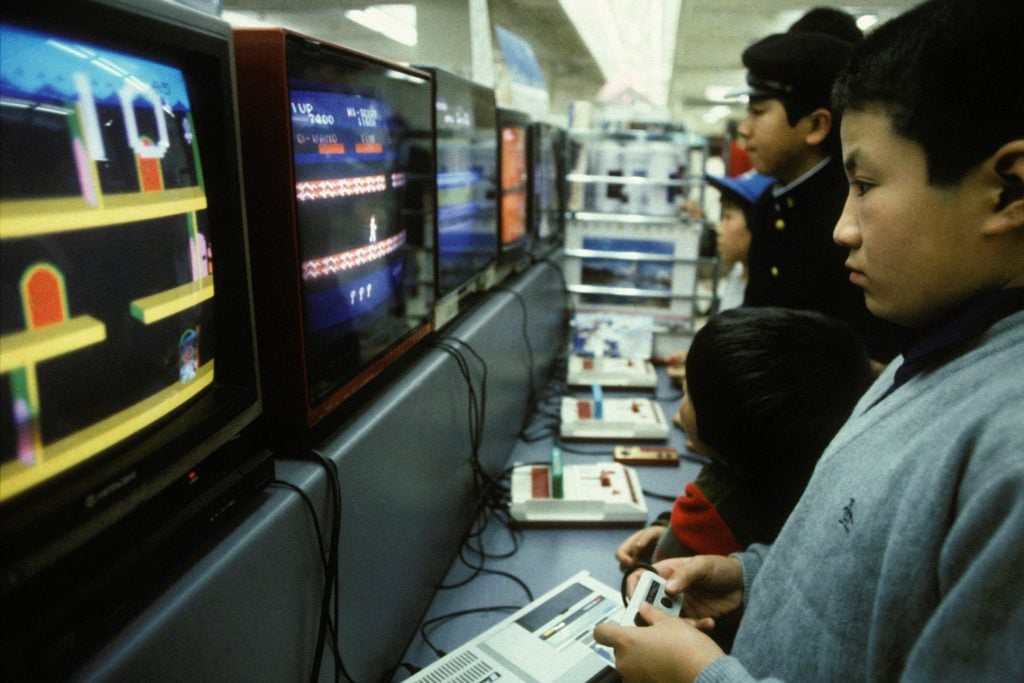
Children playing Nintendo Famicon video games in April 1986 in Japan. Photo by Kaku KURITA/Gamma-Rapho via Getty Images.
In the first three months of the pandemic, sales for video games on eBay increased by over 110 percent, a company representative told Artnet News in an email. What’s more, sales of products graded by Wata Games, which rates video games for condition and authenticity, grew 330 percent by volume between February 2020 and June 2021 on eBay.
Before 2018, there was no independent video game authority that offered professional grading services for video games—standard practice for other collectibles, such as comics, coins, and trading cards. Since opening that year, Wata Games has become the industry standard, a reliable third party that lets less-knowledgable collectors rely on experts with an established history in accessing video game condition and authenticity.
“It allows more people to buy games with confidence that what they’re getting is genuine and in the condition that it’s advertised in,” McLeckie said of Wata Games. “It really lowers the barrier to entry for people who don’t necessarily have the basis of knowledge to confirm whether or not a seal is authentic.”
And Wata Games isn’t the only new company to jump into the market.
Rally, a corporation that offers customers the chance to purchase shares in high-end collectibles, started by selling cars before expanding into other categories such as comic books, rare books, and wine. Video games are the next frontier.
“We realized that games were starting to get real attention,” Rob Petrozzo, one of Rally’s founders, told Artnet News.
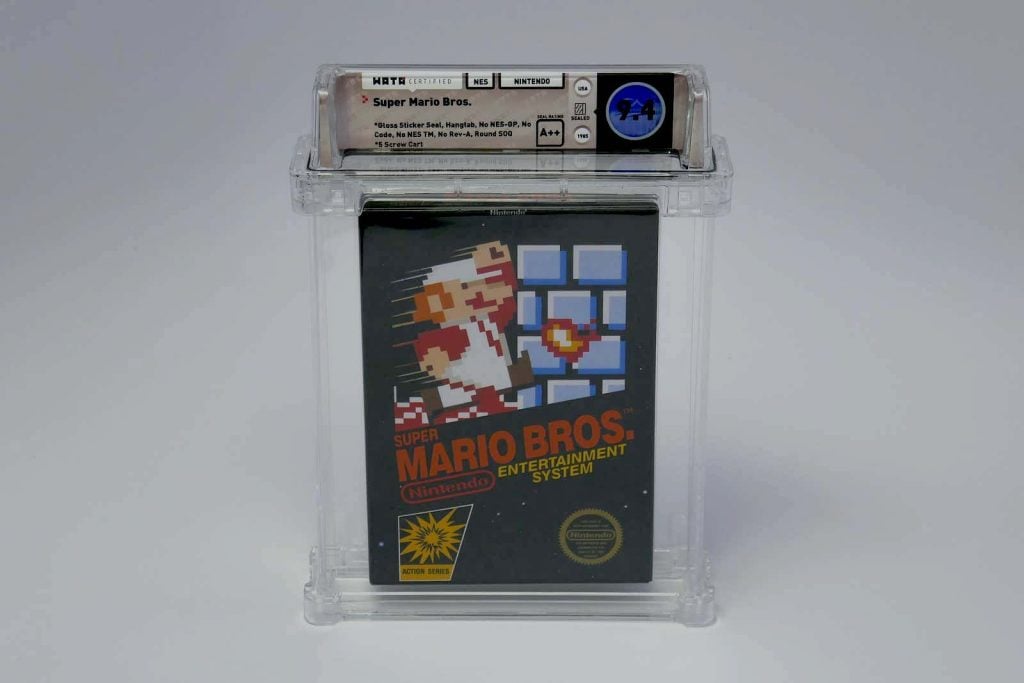
This unopened Super Mario Bros. video game from 1985 was the first video game to sell for six figures with a $100,150 sale in February 2019. Photo courtesy of Heritage Auctions.
Super Mario Bros., which the company purchased for $140,000 in April 2020, was a natural choice for its first video game offering. Rally sold 3,000 shares in the game for $50 each. Shareholders later rejected a collector’s $300,000 offer to buy the work, before voting to flip it at the $2 million price point to another anonymous buyer.
“For all intents and purposes, Mario is really the rookie card of video games,” Petrozzo said. “It’s a game that resonates with everybody, not just the hardcore gamers.”
Before Wata entered the field, the high-end video game market tended toward true rarities, such as test versions of games with cancelled releases. But the new wave of sales is focused almost entirely on classic titles, which are more appealing to first-time collectors.
“You can dip your toe in the water with a name that you know and you’re comfortable with,” Petrozzo said. “For the Marios, the Zeldas, some of the James Bond Nintendo 64 games, they’re the ones that a 30-year old, a 35-year-old has great memories of being in basement playing with their friends. And now they might have a little bit of money to invest and see this as an opportunity, and that’s going to continue to drive the market.”
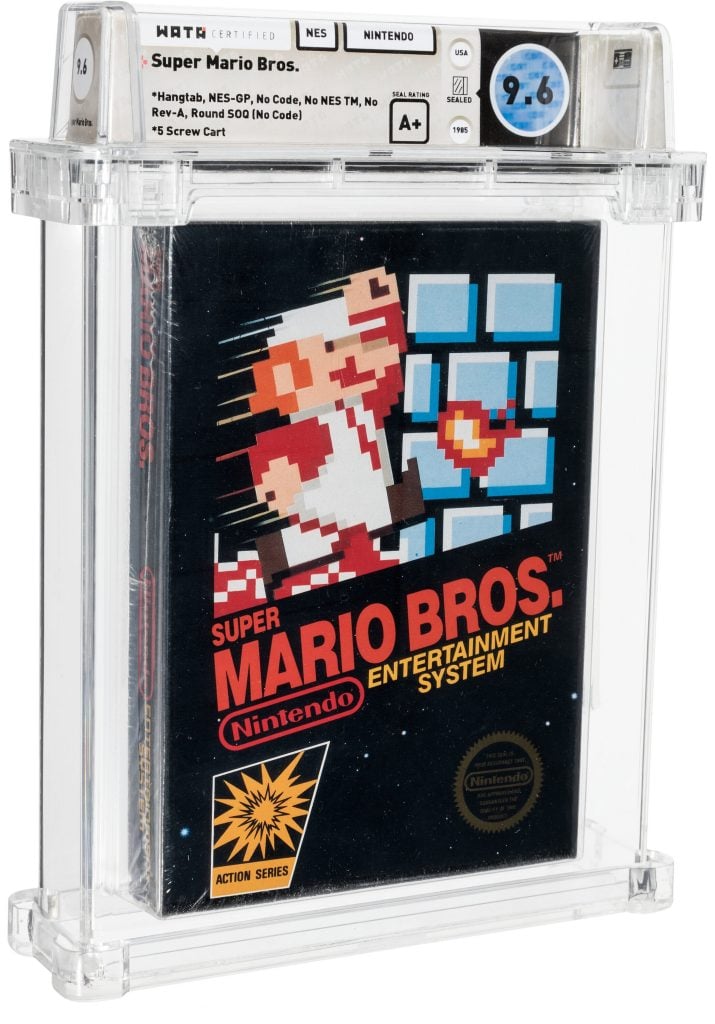
This sealed copy of the Nintendo’s original Super Mario Bros. game from 1985 set a world record for a video game at auction when it sold for $660,000 on April 2, 2021. Photo courtesy of Heritage Auctions, Dallas.
Mario set a new record not long after Rally launched its initial gaming offering. In July 2020, another U.S. test market copy of Super Mario Bros. from 1985, this one with a rare cardboard hang tab sealed in plastic wrap, sold for $114,000. (There are 11 variations of the game’s original packaging, according to a Wata guide.)
That record opened the floodgates: The next record-setter came in November 2020, with a $156,000 copy of 1990’s Super Mario Bros. 3. Then, in April this year, another hang tab copy of Super Mario Bros. from 1985—the oldest-known sealed copy—sold for $660,000. (The original owner had bought it as a Christmas gift in 1986 but forgot about it, leaving it in a desk drawer for some 35 years.)
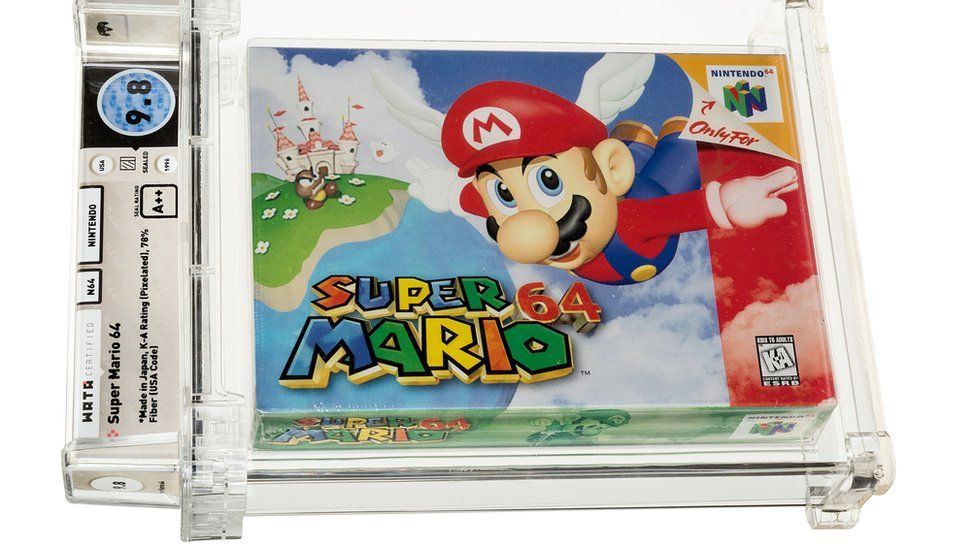
A pristine copy of the 1996 game Nintendo Mario 64 set a video game auction record with a $1.56 million sale at Heritage Auctions in July 2021. Photo courtesy of Heritage Auctions.
Then, last month, a sealed copy of The Legend of Zelda for the original Nintendo sold for $870,000. Just two days later, as part of the same auction, Heritage smashed through the $1 million barrier with a copy of Super Mario 64 still sealed in its original packaging. Originally priced at $60, the game sold for a whopping $1.56 million.
A seven-figure video game sale had clearly been on the horizon, but few would have predicted that the Nintendo 64 Mario game would be the one to do it. Over 12 million copies have sold since its 1996 release—a liability for desirability, where rarity is often the name of the game. And while Super Mario 64 marked a watershed moment in gaming, depicting the franchise’s beloved characters in three dimensions for the first time, it is typically not nearly as sought after as its NES predecessors.
Reaching the million dollar mark so soon after the game’s release was also a surprise. Baseball cards didn’t hit that mark until 2000, with the T206 Honus Wagner card, which was already 91 years old at the time. Action Comics #1, the first million-dollar comic book (featuring Superman’s debut) was 72 when a copy first fetched that much, in 2010.
“I didn’t see results like this happening so soon,” McLeckie, who was anticipating a mid-six-figure sale for the Mario game, admitted. But she also wasn’t that surprised. “I think at the end of the day, the games sort of sell themselves. Many people grew up playing these games and have a strong sense of nostalgia and connection with the characters. It’s sort of a perfect storm.”
As video game aficionados anticipate more six- and seven-figure sales in this red-hot collectibles market, the listings to keep an eye on will be factory-sealed copies of famous, beloved titles in mint condition. If the game was opened—as almost all games were—its value as a top-tier collectible is gone.
“You had to be a psychopath to get a game on a holiday and not open it up and play it with your friends immediately,” Petrozzo said. “To think that somebody held on to games for 35 years is mind-blowing to me.”
But how sustainable is the market? Experts who have skin in the game remain optimistic.
“There’s always risk associated with every asset class, particularly with something that’s new,” Petrozzo allowed. “But video games is a market that doesn’t appear to be dying down. You’re still seeing really healthy auction results, and you’re seeing enthusiasm about video game collecting increase dramatically. Month over month, we have a lot of new investors and collectors coming into the space.”
“I have a lot of confidence in this market,” McLeckie agreed. “Video games are essentially the most-consumed type of media these days. I don’t anticipate that this is a bubble in any way shape or form.”